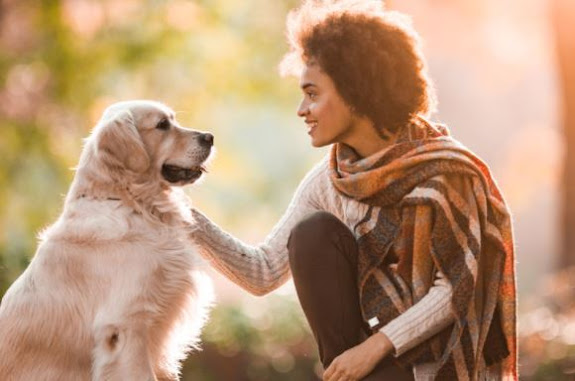a one-story building in a secluded rural business park on a gray fall day a few miles from Milton Keynes. It looks like the location of a grim thriller: perhaps considered a kidnapped victim or a scene of the last shoot. Still, something so cool is going on inside.
In the brightly lit room, four inverted metal cups were placed on the red carpet, each with a small glass jar. One of them has a smell: "the smell of training." Billy bursts into the room, then Jess. Billy is a Labrador and Jesse is his coach. Billy bounces off the place, clearly excited. He cursed everything - furniture, people, glasses. When he smells a cup that smells, another coach, Jayde, shows success by clicking. Billy is awarded a favorite toy, a well-chewed rubber ball, and a "good boy" chorus.
So far unnoticed. Dogs have great noses, everyone knows that. They are thought to be at least 10,000 times better than ours. It’s not immediately clear how good Billy is. Did he really find the smell, or did Jayde just click to smell the right cup? To be fair, he is young, 18 months old, and this is only his second session. The coaches - Jess, Jayde and Mark - have high hopes for him. And as the couple goes on, it turns out he’s finding the right cup really quickly. He also clearly enjoys the game. What Bill lacks to improve is offset by youthful enthusiasm and abundance, and he learns quickly.
That's good news: it's just Billy's first phase of quick training to learn how to smell Covid-19. He is, of course, not working with the real virus, but with an example of training that will teach him to do the job.
We are at the headquarters of the charity Medical Detection Dogs, founded by behavioral psychologist Claire Guest, who is particularly interested in human-dog relationships. Today, she shows up with her canine environment: a cocker spaniel, a wire-haired dachshund, a pair of Labradors who all live with her and follow her as students. She tells them, “No, no, no, Asher please ... da-da-da, sweet pea!” Too late. Igis, the dachshund, is a rescue dog and is still learning things, including the fact that the red carpet is not a toilet. The guest does not blame him; she is guilty, she says.
It all started when a Guest friend told her about her pet Dalmatian, stubbornly sniffing one of her moles. The girlfriend went to the family doctor, removed the mole, and found that she had malignant melanoma. “Since then, I’ve thought that if I can do anything in my life, I want to prove that dogs can smell cancer and disease,” the guest says. Later, she will have her own personal experience: the dog being trained began to behave strangely around her, pushing and staring at her as if worried. The guest also went to a general practitioner and was referred to: "And to put it briefly, I was diagnosed with early-stage breast cancer."
This may sound more like Take A Break than the British Medical Journal, and Guest admits she has experienced a lot of skepticism along the way. However, she emphasizes that She was working on the first study that showed that dogs could detect human bladder cancer, which was actually declared BMJ. She recently worked with Professors James Logan at the London School of Hygiene and Tropical Medicine and Steve Lindsay of the University of Durham’s Department of Biosciences, among other things, on a successful project to teach dogs to recognize malaria.



إرسال تعليق